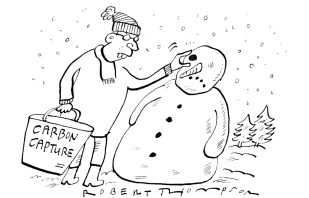Crime. Fear not: none of us was planning to break the law, with the possible exception of hate speech. Where that is concerned, how would one start? But we were more concerned with crime and literature, and a fascinating perennial question. What is the distinction between crime fiction and novels?
In the 1990s, I introduced one of the loveliest girls of the age to the delights of proper wine
Crime and Punishment: no problem. So what about The Moonstone? There are very many supposed novels which I would rather read. Moving nearer our own day, we have Dorothy Sayers or P.D. James. More recently, Reginald Hill, Susan Hill and Ian Rankin.
Victorian ladies were not supposed to read novels before lunchtime. I take a similar view of crime literature: not to be indulged in during what a hack might claim to be the hours of the working day. So I have not yet read the latest Rankin. In the most recent previous book, John Rebus looks as if he is about to be sent to prison for murder. I shall undoubtedly read the next instalment during the Christmas break. With one bound, will Rebus be free? Whatever, it will be a gripping narrative.
Cross the Atlantic: everyone has read Raymond Chandler. Dulwich College is an excellent school. I have met plenty of admirable alumni. But it is amusing to think that this academy for the tough-minded bourgeoisie produced Chandler and P.G. Wodehouse: both masters of the language.
In recent times, we have Michael Connolly and James Lee Burke. Powerful plots, lyrical prose – especially Burke – and engrossing social commentary: is that not a description of a novel’s attributes? Is it mere snobbery to refuse those authors the novelist’s accolade?
There was talk of putting Reginald Hill forward for the Booker. Alas, he died far too young. I regret never meeting him, because I am sure that we would have had a most gratifyingly furious argument. His principal character, chief superintendent Andy Dalziel, would have been a candidate for a life peerage from Margaret Thatcher, except that when politics intrude, he sounds like one of Arthur Scargill’s press officers. So: a failure on social commentary, and just as well. But the books are a cracking good read.
Although we did not sort out the distinction between high and low literature, there was a delicious outbreak of nostalgia. In the mid-1990s, I introduced one of the loveliest girls of the age to the delights of proper wine. I am not allowed to name her, otherwise the skies would be full of pursuivants from Beverly Hills. The bottle was a 1988 Calon-Segur. The ’88s were – and are – undervalued because Robert Parker seems to believe that Bordeaux should taste like alcoholic fruit juice.

Parker’s curious taste cannot be blamed on this girl. Though – or perhaps because – she comes from serious wine-drinking stock, she had been too stubborn to yield to the temptation. As she tasted, she instantly accused me of ruining her palate. ‘What?’ ‘Yes. I thought I knew everything about wine – it was either £2.99 in the supermarket, or £3.99, depending on the budget. I will never be able to revert to those days.’ Only such a glorious minx could try to make a chap feel guilty about offering her a wine halfway worthy of her looks. But there it is. Beatrice will always defeat Benedick.
Last week, the wine was showing its age, unlike the girl (age cannot wither her, nor custom stale). Without making any concession to Parker, the ’88s probably do now need drinking up. That said, I drank a Latour the other month which was still well this side of senility. But that is Latour.
This is Advent: a suitable season for revelling in fine wine, great music and good books. Thus diverted, one can overlook the fact that the hopes of much of mankind are now being crucified. Those who believe in prayer should exert themselves to wish for a better new year.








Comments